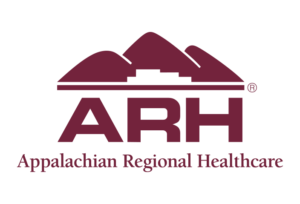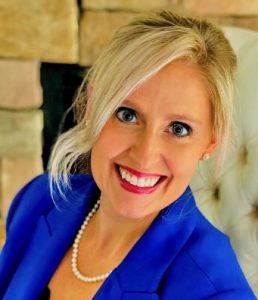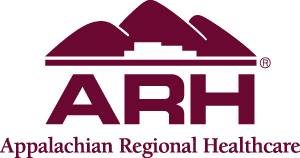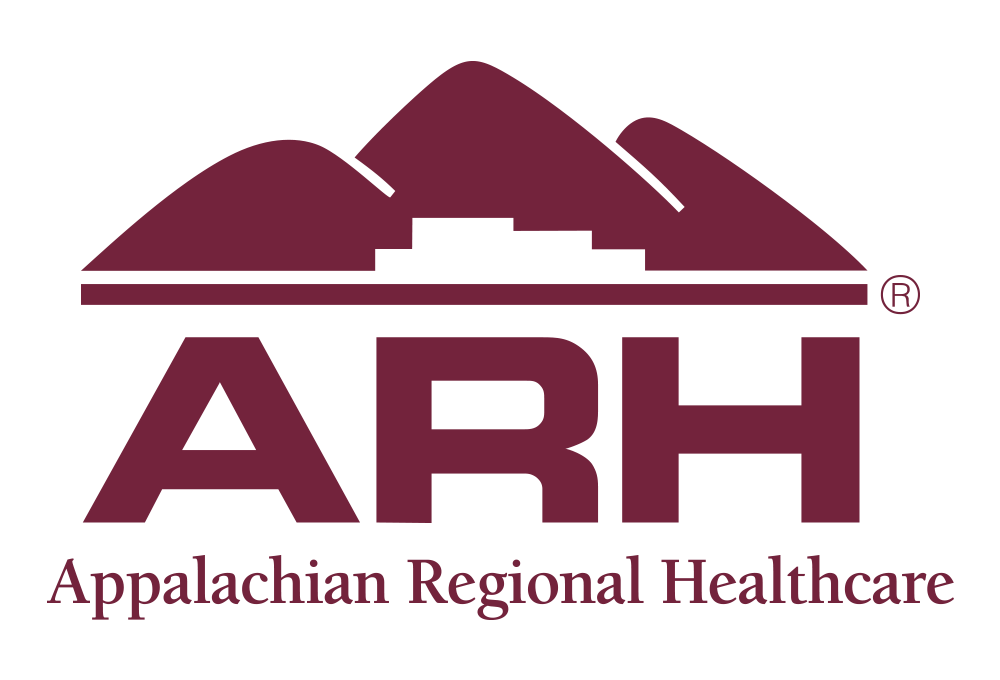
NEWS RELEASE – March 25, 2024
"These people are me."
ARH Chief Legal Officer Christi Lee is committed to her native eastern Kentucky
LEXINGTON, KY. — As a teenager, Christi Lee knew the names and faces of every customer at her grandfather’s Dry Fork Market.
“It was one of the only grocery stores in the area, so, I think I got to know everyone in Letcher County.” Lee recalls with a laugh. “I really loved working there and I loved just helping out.”
These days, Lee no longer spends her time totaling and bagging her neighbors’ purchases, but she remains committed to helping them,
nonetheless.
 As Chief Legal Officer for Appalachian Regional Healthcare, she works mostly behind the scenes. And though she isn’t stitching wounds or providing hands-on patient care, she, just the same as each of ARH’s 6,700 employees, dedicates her life to ensuring every resident in eastern Kentucky and southern West Virginia has access to the best healthcare possible.
As Chief Legal Officer for Appalachian Regional Healthcare, she works mostly behind the scenes. And though she isn’t stitching wounds or providing hands-on patient care, she, just the same as each of ARH’s 6,700 employees, dedicates her life to ensuring every resident in eastern Kentucky and southern West Virginia has access to the best healthcare possible.
The idea of inequality and fairness in Appalachia is something about which Lee has always felt passionate. Her position at ARH, she says, allows her to work toward leveling the playing field.
“I learned at a very young age that the people of Appalachia have never been treated fairly and that ignited a fire in me that has only grown stronger through the years,” she says. “That fire, combined with my love of family and community is why I’m here today.
“It’s important to me to do everything I can to help improve the lives of all Appalachians,” she continues. “These people are important to
me. These people are me.”
***
Lee smiles when she talks about her childhood, raised by two public schoolteachers and surrounded by grandparents, aunts, uncles and cousins “in the head of the holler” in Whitesburg, Ky.
“We spent every Sunday together and had dinner as a family several nights a week,” she recalls. “We all lived within a mile from each other. It was wonderful.”
So, it was only natural for her to struggle initially when she eventually moved 145 miles away to attend the University of Kentucky.
“It was difficult being away from home, but it was also when I started to get the idea that maybe I could do something bigger than what I had always thought,” she says.
Lee majored in psychology and, until the summer before her senior year, planned to go straight into a doctorate program.
She liked the idea of becoming a psychologist but wasn’t particularly fond of moving further away from home and spending an additional seven years in school before she could begin making money.
“I wish I had a better or more interesting story about why I became a lawyer, but it’s just where I ended up,” she says with a laugh.
When Lee realized psychology wasn’t her path, she decided to take the LSAT and, if she did well enough, apply for law school.
“It must have been divine will, but I did well enough to get into UK Law School,” she says.
But even with the acceptance in-hand, she recalls feeling unsure if it was really something she could do.
That doubt, she says, was soon tossed aside.
“I learned pretty quickly that I best be believing in my own self and that I needed to be confident,” she says.
Just as Lee had to learn to believe in herself, she says she had to force others to believe in her as well.
“I don’t know,” she says, pausing. “Maybe I don’t look like your typical studious person because I’m blonde. Maybe it’s because I’m a female. I know some of it’s because of my accent.
“But I didn’t mind being underestimated,” she continues, in her distinctive eastern Kentucky twang. “I still don’t mind.”
***
She isn’t sure where she placed among her fellow law school graduates. She knows it was somewhere in the top 15 percent – good enough to secure a prestigious one-year clerkship with United States Federal Court Judge Karen Caldwell.
Lee, who relies on prayer and faith to help her through difficult situations, calls her selection another example of “divine intervention.”
“It’s highly, highly competitive,” she says. “She would have had to have passed up people ranked ahead of me. People likely smarter than me. People with more qualifications than me.
“But she picked me and that was the turning point in my career.”
After her clerkship, Lee was hired as an associate at a Lexington law firm.
“I had a lot of opportunities there,” she says of the experience, which she says both tore her ego down and helped build it back up. “I’m grateful. They took a baby lawyer and turned her into a good lawyer.”
By the time she left there, she says her hopes for her career were a bit more focused.
“I had worked as a corporate defense lawyer, but I knew I would like to become in-house counsel for a larger company,” she says.
She recognized, however, that she needed to gain employment law experience before making that jump.
She was two years into her time with a large, national employment law firm when her vision for the future fully cleared.
By that time, she was the mother of two young children, living in her “dream home,” on a large property in Midway, Ky., about 20 miles outside of Lexington.
“My kids were settled, and I was comfortable with life except I didn’t know what I was working for at the end of the day,” she says. “Working just for a paycheck is not what makes me tick.
“It wasn’t enough, and I knew it never would be.”
Around that time, Lee was making regular trips from Midway back home to Whitesburg to spend time with her grandmother who was in failing health.
“She had wanted me to move back home, but the timing was always off,” she recalls.
The timing was still off when, as she drove home from her grandmother’s funeral, she received a job offer from ARH.
But divine intervention stepped in again.
“When I got that call, I knew it was bigger than whatever obstacles I had to hurdle to get home to eastern Kentucky,” she says. “I prayed about it, and, ultimately, I just couldn’t deny that I truly believed God was putting me in the position where he needed me to be. Something told me if I followed him, he would work the rest out.
“So, I did.”
***
Lee began her ARH career in 2013, in the newly created associate general counsel position.
At that point, she says, the company was growing, and more hands were needed.
Lee learned a lot in those first few years as she adjusted to in-house work.
“I knew how to be a lawyer,” she says. “I was a good lawyer by that point, but being in-house is a whole different ballgame than when you’re in private practice. When you’re in private practice, you’re either defending a company or you’re giving them advice and you’re hoping they take it.
“When you’re in-house, the stakes are much higher because you are the client and every decision you make directly affects not only you but your coworkers, all your patients, all the people you love, all the communities you love. It never leaves my mind that every decision I make and every piece of advice I give has consequences.”
As Lee progressed in her new position, she says she always hoped that one day she would be tasked with leading the legal department.
That happened in 2020, when she was named Vice President of Legal Affairs and General Counsel, a position that, in 2022, was renamed Chief Legal Officer.
“I always knew I wanted to move into the chief role,” she says. “But there were twists and turns along the way. I knew I had trained for it, and I believed I was the best candidate for it, but I wasn’t sure what God wanted my title to be until it happened.”
Lee oversees two other ARH attorneys, three paralegals, the ARH Foundation for Healthier Communities, and ARH’s risk and safety departments.
Among other responsibilities, the ARH legal department handles compliance and insurance matters, processes thousands of contracts annually, takes care of all business filings, and manages both lawsuits and outside counsel.
“I have a wonderful team,” Lee says. “It wouldn’t be possible without their help and expertise.”
***
Lee isn’t a title-driven person.
The mother of 11-year-old Lori Lee and 13-year-old Houston doesn’t talk much about being ARH’s first female chief legal officer.
She does, however, know it’s an important distinction.
“It’s more important because I have a daughter,” she says. “I cherish both of my kids and love them the same, but I know my daughter will have to be twice as good as her brother to reach the same heights, particularly if she chooses a profession that hasn’t been pioneered by women yet.
“I tell her she can be anything she wants to be,” she continues. “I tell her that knowing, in this country, a female has never been president. One day I hope I can be completely honest when I tell her she can be anything she wants to be. But until then, I hope she can look at her mother and know she can work hard and accomplish big things.”
And Lee also hopes her story can help encourage other Appalachians who dream big but might fall short on faith.
“Appalachia isn’t just my culture,” she says. “It’s who I am. These people are mine. These are the people who sound like me. They’re the people I’ve never met but who share so much with me that they are me. We’re all the same, and I hope they know they can reach the heights of their careers.
“This is more than anything I ever imagined growing up in the head of the holler.”
GET TO KNOW CHRISTI LEE
What’s your favorite song? Silver Springs by Fleetwood Mac
Who is your favorite musician? Dolly Parton
What is your favorite movie? National Lampoon’s Christmas Vacation
Morning or night? Night
What is the wallpaper on your phone? A pic of my kids and me
What is your favorite food? Sushi
What’s your favorite book? A New Earth by Eckhart Tolle
What is your favorite quote? For unto whomsoever much is given, of him shall be much required. Luke 12:48
What is your dream vacation? Venice, Italy
New Kids on the Block, Backstreet Boys or NSYNC? NKOTB, 100%
Appalachian Regional Healthcare (ARH), is a not-for-profit health system operating 14 hospitals in Barbourville, Hazard, Harlan, Hyden, Martin, McDowell, Middlesboro, Paintsville, Prestonsburg, West Liberty, Whitesburg, and South Williamson in Kentucky and Beckley and Hinton in West Virginia, as well as multi-specialty physician practices, home health agencies, home medical equipment stores and retail pharmacies and medical spas. ARH employs approximately 6,700 people with an annual payroll and benefits of $474 million generated into our local economies. ARH also has a network of more than 1,300 providers on staff across its multi-state system. ARH is the largest provider of care and the single largest employer in southeastern Kentucky, and the third-largest private employer in southern West Virginia


